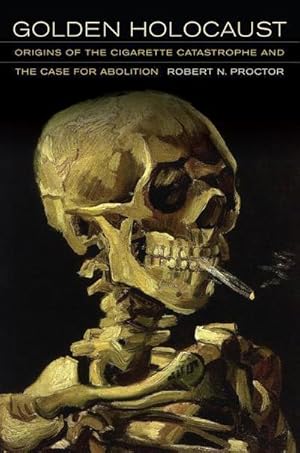university of california press feb 2012 (2 Ergebnisse)
Produktart
- Alle Product Types
- Bücher (2)
- Magazine & Zeitschriften
- Comics
- Noten
- Kunst, Grafik & Poster
- Fotografien
- Karten
- Manuskripte & Papierantiquitäten
Zustand
Einband
Weitere Eigenschaften
- Erstausgabe
- Signiert
- Schutzumschlag
- Angebotsfoto (2)
Gratisversand
- Versand nach USA gratis
Land des Verkäufers
Verkäuferbewertung
-
The Embodied Eye : Religious Visual Culture and the Social Life of Feeling
Verlag: University Of California Press Feb 2012, 2012
ISBN 10: 0520272234ISBN 13: 9780520272231
Anbieter: AHA-BUCH GmbH, Einbeck, Deutschland
Buch
Taschenbuch. Zustand: Neu. Neuware - Rather than isolating vision from sensation and feeling, Morgan stresses the profoundly embodied nature of sight. Grounding the study of religious images and visual practices in the relationship between seeing and the senses, this book explores how vision colors what is seen with emotion and organizes social life in forms of shared feeling. The first part of the book theorizes seeing and the study of religious visual culture. The second part provides four case studies of how seeing is related to touching, hearing, feeling and such ephemeral experiences as dreams, imagination and visions.
-
Golden Holocaust : Origins of the Cigarette Catastrophe and the Case for Abolition
Verlag: University Of California Press Feb 2012, 2012
ISBN 10: 0520270169ISBN 13: 9780520270169
Anbieter: AHA-BUCH GmbH, Einbeck, Deutschland
Buch
Buch. Zustand: Neu. Neuware - 'The great cause of global health is in Robert Proctor's debt. Golden Holocaust is a model of impassioned scholarly research and advocacy. As Proctor so powerfully demonstrates, the time has come to hold the tobacco industry accountable for the massive disease, debility, and death that they produce around the world.'--Allan M. Brandt, author of The Cigarette Century'Robert Proctor unpacks the sad history of an industrial fraud. His tightly reasoned exploration touches on all topics on which the tobacco makers lied repeatedly to Congress and the public.'--Don Kennedy, President Emeritus, Stanford University and former Editor, Science'This book is a remarkable compendium of evil. It will keep you spinning from page one through the last with a detailed description of how one of the most notorious industries in American history deceived and manipulated the public, the politicians, and the scientific community into allowing an age-old toxin to be breathed directly into the lungs of millions of Americans. It is the type of book that makes you wonder how, in God's name, this could have happened '-David Rosner, author of Deceit and Denial'Proctor powerfully documents how a small number of tobacco companies caused a tragic, global epidemic. His account of this history and of the 'lessons learned' is relevant to the ongoing effort to end the tobacco epidemic and to efforts to control emerging pandemics of non-communicable diseases.' --Jonathan M. Samet, M.D., M.S., Director, Institute for Global Health, University of Southern California'Proctor weaves together the public historical record with inside details and insights from thousands of once secret industry documents. Anyone who cares about health, deception, science or politics will learn something new from this book.'-Stanton A. Glantz, Professor of Medicine, UC San Francisco, and author of The Cigarette Papers'A powerful indictment of the world's deadliest industry'-John R. Seffrin, PhD, Chief Executive Officer, American Cancer Society'By carefully analyzing formerly secret industry documents, Proctor has shown how cigarette manufacturers knew that the 'filters' on virtually all cigarettes sold today are utterly fraudulent. His call for a ban is likely to change how we think about such devices; this excellent book is a must read for tobacco control and environmental activists alike.'--Thomas E. Novotny, MD MPH, Former US Assistant Surgeon General and CEO, Cigarette Butt Pollution Project.'Scholarly yet eminently readable, indeed gripping, this book asks us to consider what the end game for tobacco might look like. A must-read for policy makers and public health officials, and for anyone struggling against the tobacco industry in the field.'--Professor Judith Mackay, Senior Advisor, World Lung Foundation, Hong Kong, China SAR''The machine-rolled cigarette is the single most deadly consumer product ever made. Proctor's powerful, witty, and wide-ranging book shows how we came to accept as normal the promotion and use of products that have caused a global epidemic of disease and death. But more importantly, he outlines a way to end this grim chapter in human history.'--Ruth E. Malone, RN, PhD, FAAN, Editor, Tobacco Control'This is the most important book on smoking in fifty years. Proctor's unique mix of scholarship, readability, wit and political understanding tells a no-holds-barred story with conclusions that governments cannot afford to ignore. It will change the course of public health history.'--Professor Mike Daube, President, Australian Council on Smoking and Health'Proctor draws masterfully from a vast archive of documents wrested from the industry, including many never before discussed, and mounts an unforgettable case about what the tobacco industry has done and what we must do about it. This is the book to help us understand what we must do to save lives.'--Peter Galison, author of Einstein's Clocks, Poincaré's Maps'Golden Holocaust will stand indelibly as a landmark in the field of medicine and the history of science. It is a monument of committed scholarship and cool passion, making brilliant use of the new technics of data-mining to reveal a terrible calculus, while giving the lie to claims that advocacy must be the enemy of objectivity. Lives, far too many lives, depend on what this book contains.'--Iain Boal, Birkbeck College, London and Guggenheim Fellow in Science and Technology'Robert Proctor draws an unvarnished conclusion: that the tobacco industry, and the men who led it, were evil, plain and simple. They knowingly sold a product that, when used as intended, killed people. And then they conspired to suppress the evidence. Not everyone will agree with Proctor, but anyone interested in the intertwined issues of science and health, and culture and commerce, needs to read this book.'--Naomi Oreskes, coauthor of Merchants of Doubt'Robert Proctor lays bare the deliberate choices made by the tobacco companies to addict their customers and cause premature death. Here is clarity to the unprecedented scientific fraud perpetrated by the tobacco industry.'--William A. Farone, Ph.D. Chairman, Applied Power Concepts, Inc. (formerly Director of Scientific Research for Philip Morris USA, 1977-1984).



